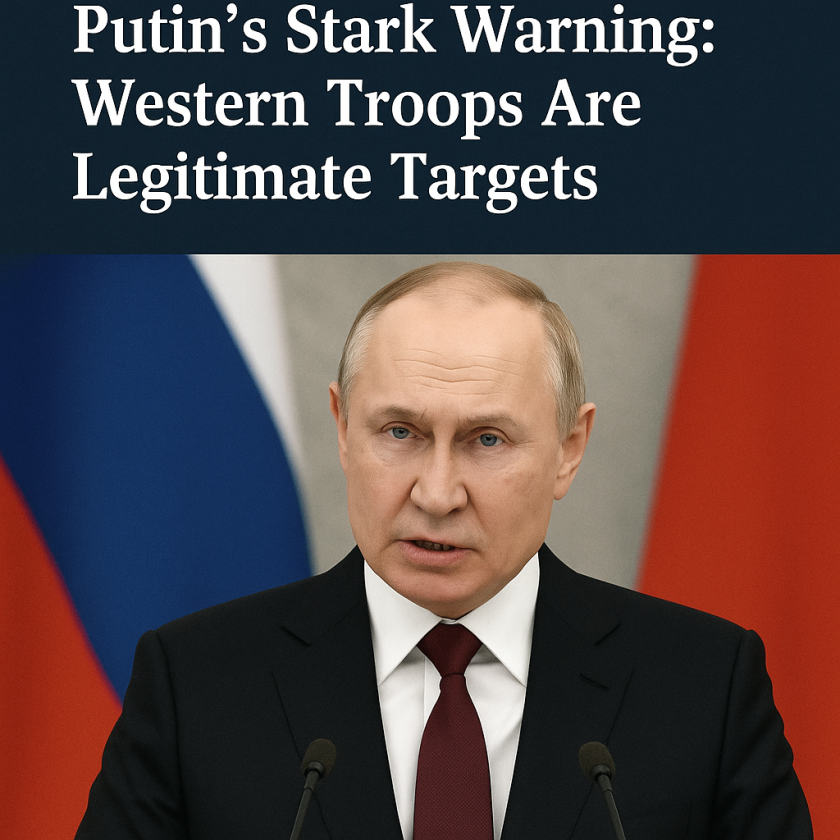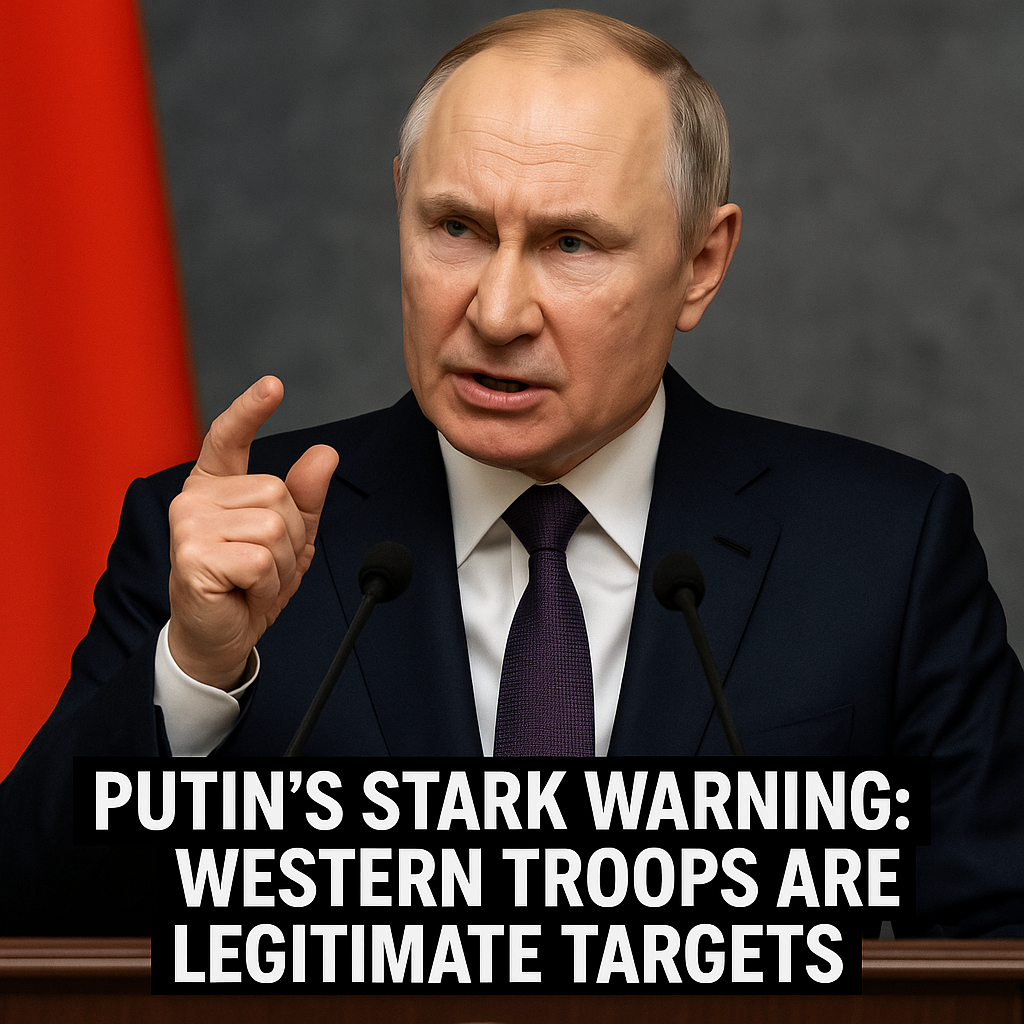Putin’s Stark Warning: Western Troops Are Legitimate Targets
Understanding Putin’s Stark Warning: A Complex Landscape of Military Tensions
Putin’s recent assertion that Western troops in Ukraine would be considered legitimate targets has ignited a critical discussion regarding the ongoing conflict. This declaration raises multiple concerns about international law, military ethics, and geopolitical stability.
The Context of Putin’s Warning

In a recent address, Russian President Vladimir Putin asserted that any Western troops deployed in Ukraine would not only be viewed as a threat but also as legitimate military targets. This pronouncement underscores the increasing complexity of the Ukraine conflict, which has already seen devastating consequences for both military personnel and civilians alike.
According to reports from various sources, including Sky News, Putin emphasized that the presence of Western military forces in Ukraine could escalate the situation dramatically. He warned that their involvement could serve to intensify military operations and lead to further confrontation. This statement aligns with long-held Russian views that Western support for Ukraine represents an encroachment into its sphere of influence.
Diverse Reactions from the International Community
Responses to Putin’s warning have varied significantly. Some Western officials, while expressing concern over the implications of such rhetoric, have reiterated their commitment to assist Ukraine militarily. A senior NATO official stated, “We are unwavering in our support for Ukraine and will not be deterred by threats.” This commitment highlights a clear divide between NATO positions and Russian rhetoric, suggesting a potential for increased military engagement in the region.
Conversely, analysts argue that Putin’s warning may be designed to intimidate Western nations into reconsidering their military support for Ukraine. In a piece from Al Jazeera, experts noted that such threats often serve a dual purpose: they aim to rally domestic support within Russia while simultaneously sending a message to international audiences. This duality complicates the interpretation of Putin’s statements, as they are deeply rooted in both domestic propaganda and international strategy.
Legal and Ethical Considerations
Putin’s declaration brings forth significant ethical and legal questions regarding the involvement of foreign troops in conflicts. According to international law, troops engaged in a conflict must adhere to the principles of distinction and proportionality. Legitimate military targets should be those that contribute to the enemy’s military capability. This is where the debate intensifies.
For example, if Western troops are present in Ukraine to provide training or advisory support, categorizing them as legitimate targets poses a significant ethical quandary. Some observers argue that attacking such personnel could represent a violation of international norms, which typically safeguard non-combatants, including foreign military advisors acting in a contingent capacity.
Further complicating this narrative, Russian state media, such as RT, have portrayed the West’s involvement as an aggressive act that justifies military responses. This perspective is often met with skepticism by international legal scholars who advocate for a reasoned approach based on established laws of armed conflict.
The Broader Implications of Increased Tensions
The implications of this warning are not confined to the battlefield. If tensions escalate into direct confrontations involving Western troops, the geopolitical landscape could shift drastically. Increased military engagement from NATO could draw Russia into a more intense conflict, one that could spiral out of control.
Moreover, such developments could affect global security dynamics, leading to a renewed arms race and heightening the risk of confrontation not just in Europe, but worldwide. Opposition leaders in the U.S. have raised concerns about the risk of geopolitical brinkmanship, warning that missteps could lead to unintended consequences. The fear of “accidental war” looms larger, emphasizing the critical need for diplomatic channels to remain open amid rising tensions.
A Call for Caution and Dialogue
Putin’s assertion that Western troops could become legitimate targets emphasizes the precarious nature of military involvement in Ukraine. As nations weigh their military options, it is crucial to balance military strategy with diplomatic efforts aimed at de-escalation. The necessity for cautious dialogue cannot be overstated; avoiding rhetoric that may provoke further conflict is paramount.
As the situation evolves, it remains essential for both Western nations and Russia to keep communication lines open. Establishing a framework for dialogue can serve to ease tensions and foster a more stable geopolitical environment.
In conclusion, the complexities surrounding Putin’s warnings highlight the multifaceted nature of modern warfare, where ethical, legal, and diplomatic considerations are often intertwined. As the international community navigates this tumultuous landscape, the imperative for informed discourse and strategic restraint becomes increasingly vital.






































